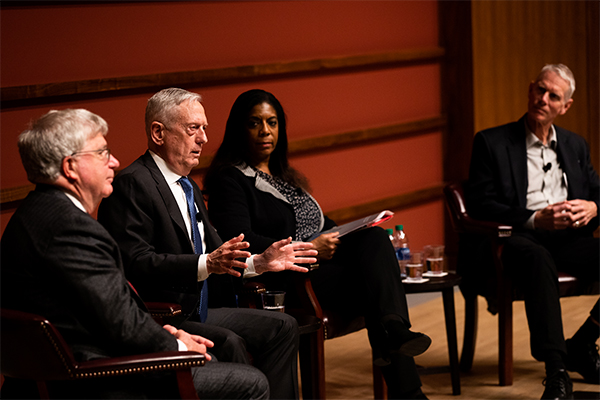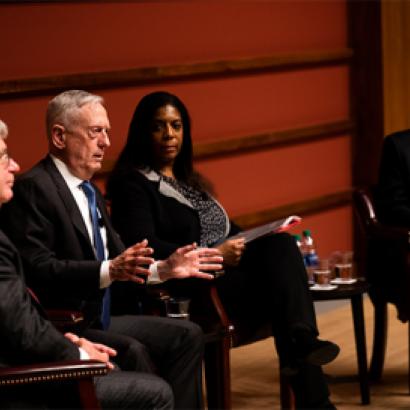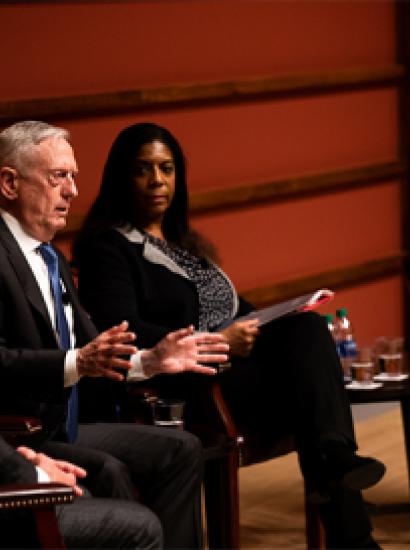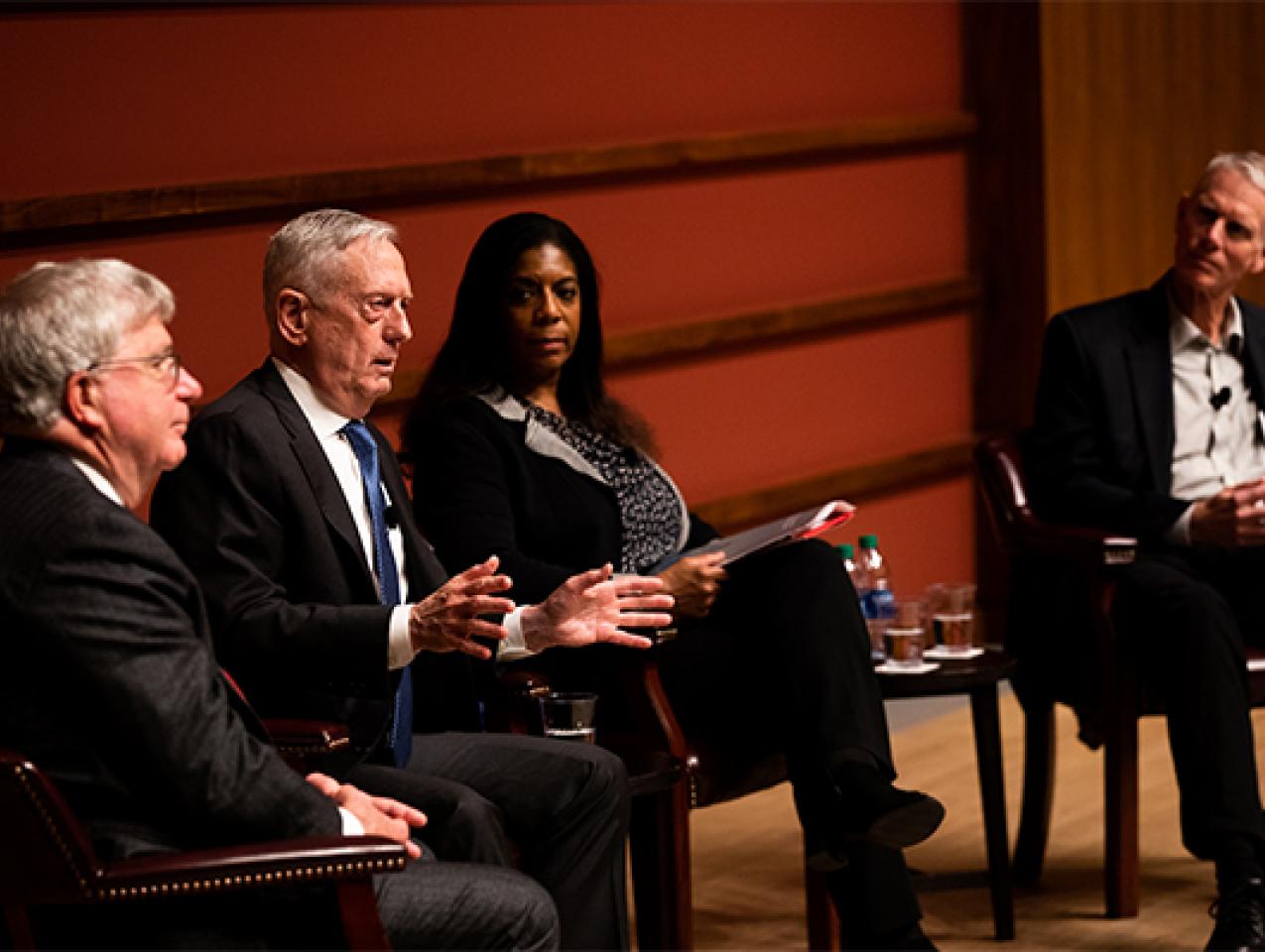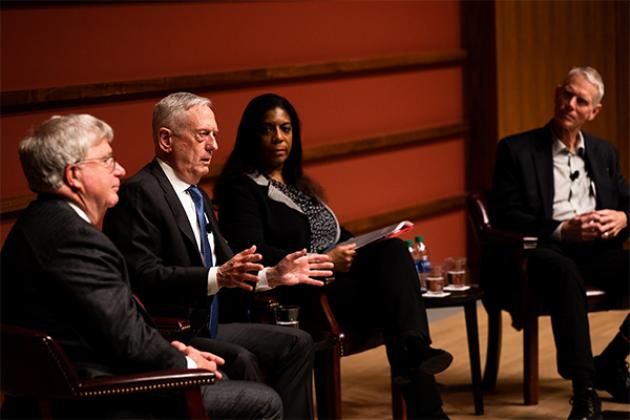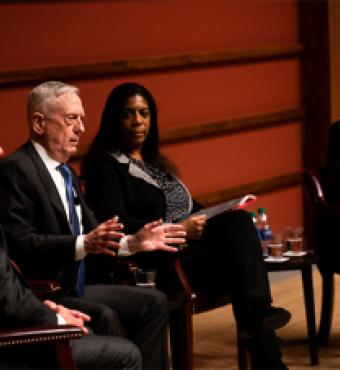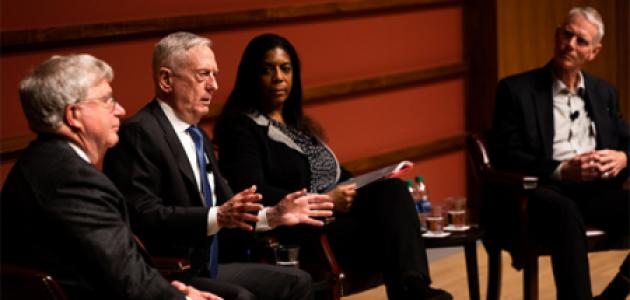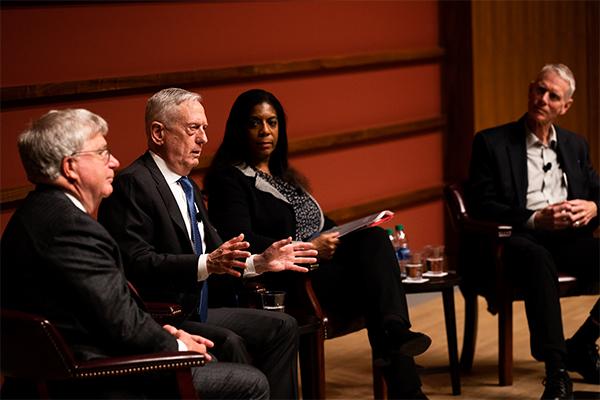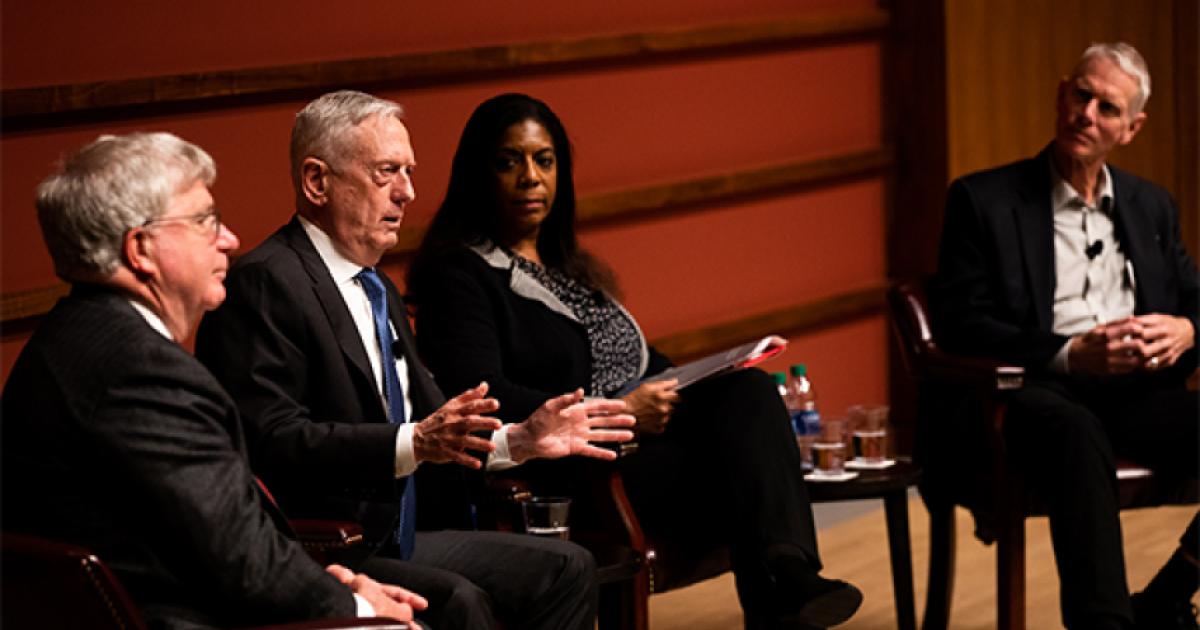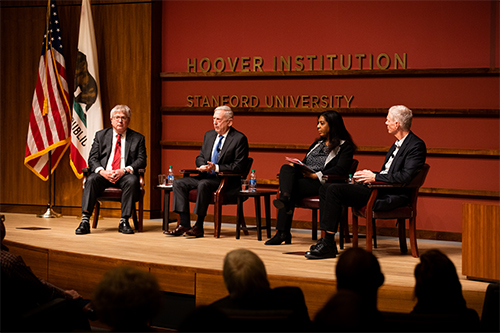
A properly formed citizenry is the basis for a strong democracy in America that can be sustained in future generations, explained scholars as part of the Hoover Institution’s centennial conversation series, A Century of Ideas.
Speaking before a full-capacity audience in Hoover’s Hauck Auditorium, the panel featured Hoover Institution Davies Family Distinguished Fellow James Mattis, Hoover Institution W. Glenn Campbell Research Fellow Kiron Skinner, and Stanford Professor of Political Science and Classics Josiah Ober. Stanford University Professor of Law and Hoover Institution Senior Fellow Michael McConnell moderated the discussion.
McConnell framed the discussion at the outset asking, “How do we form a citizenry out of such a diverse, eclectic mix of languages, religions, peoples?”
Skinner began by discussing the evolving definition of citizenship in the United States since its founding.
She cited the landmark court cases Dred Scott v. Sandford (1857), Plessy v. Ferguson (1893), and United States v. Wong Kim Ark (1897) which brought to the forefront contentious debates including whether former slaves and their descendants could be considered citizens (Dred), equality before the law (Plessy), and birthright for children born of parents who were not US citizens (Wong Kim Ark).
According to Skinner, these cases pointed to a future where all Americans, regardless of race, gender, or station in life, could realize what it means to have the full rights and privileges of an American citizen.
Ober contended that the decline in civic education standards is nothing short of a national crisis that threatens the future of democracy. Furthermore, he said, such education needs to be grounded in tradition but adapted to meet the challenges of the twenty-first Century.
“Democracy is collective self-government by citizens. That means it is the citizens themselves who must pay the costs of sustaining valuable social order,” Ober argued. “In a competitive world, citizens must have the skills necessary to carry out the duties of citizenship.”
Ober articulated ways in which these challenges should be met, starting with the behavior of national leaders.
“Leaders are civic educators—those persons who hold high office must exemplify high ethical standards and political rectitude,” Ober said.
Ober said that a high premium in secondary and post-secondary education has been placed on how to succeed in the marketplace. Meanwhile, only nine states and the District of Columbia require a full year of US government coursework and other civics education sources.
Ober argued that educational leaders should go beyond just setting requirements. Rather, they should design advanced curriculum that teaches students about the challenges societies have in establishing democracy, and historical examples illustrating when it has succeeded and failed.
Mattis offered perspectives on the military’s role in forming citizenry from his four-decades-long career as an infantry officer in the United States Marine Corps, arguing that trust and a commitment to democratic principles are the key ingredients of building citizenry in America.
The retired four-star general and former secretary of defense said that in a society as diverse and complex as America, the sacrifices made amid the grueling conditions and challenges of warfare are unifying factors that rapidly remove differences of race, religion, and social rank.
He underlined this point by noting that lawful permanent residents and children of immigrants enlist at higher rates than other Americans. Remembering his first two years in the Marine Corps, he said the senior noncommissioned officers—the people he relied upon most in leading his platoon—were all non–US citizens.
He relayed another story that occurred while he was young officer deployed in the South China Sea. He and his fellow marines and sailors spotted a decrepit ship of refugees and could see the fear and apprehension on their faces as the American vessel approached. Following their rescue, “they knew they could trust us,” Mattis said.
Mattis recalled a meeting thirty-five years later with a foreign ambassador who believed that Americans “made the single most self-sacrificial pledge in world history” after World War II.
The ambassador said the United States could have said they were finished protecting Europe after two world wars and would offer no deterrence against the Soviet army. Instead, America pledged to expend blood and treasure to safeguard democracy in Europe.
During the question-and-answer session, one audience member asked the panel members what they believed was the biggest threat to American democracy.
McConnell answered that Americans generally valuing tribalism above national unity, and are dividing the country along the lines of race, gender identity, and political party.
“The sign of these things becoming dangerous is when people love to hate folks of the other side,” McConnell said.







